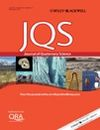
JOURNAL OF QUATERNARY SCIENCE
metrics 2024
Exploring the Depths of Quaternary Knowledge
Introduction
The JOURNAL OF QUATERNARY SCIENCE, published by Wiley, stands as a premier platform for the dissemination of pivotal research in the fields of Arts and Humanities, Earth and Planetary Sciences, and Paleontology. With its ISSN 0267-8179 and E-ISSN 1099-1417, this esteemed journal has achieved an impressive Q1 ranking across multiple categories in 2023, highlighting its significant impact and relevance within the academic community. With a history extending from 1986 to 2024, it offers a treasure trove of knowledge, presenting cutting-edge studies that advance our understanding of Quaternary science. Although the journal does not operate under an Open Access model, it remains highly regarded, as evidenced by its Scopus rankings positioning it in the top percentiles within its categories. Researchers, professionals, and students alike will benefit from the robust insights and innovative research published in this journal, making it an essential resource for anyone engaged in the study of Quaternary environments and their implications on our planet’s history.
Metrics 2024
 0.79
0.79 1.90
1.90 2.30
2.30 104
104Metrics History
Rank 2024
Scopus
IF (Web Of Science)
JCI (Web Of Science)
Quartile History
Similar Journals

GEO-MARINE LETTERS
Exploring the Depths of Earth and Ocean SciencesGEO-MARINE LETTERS, published by Springer, is a prestigious academic journal that has been a pivotal platform for the dissemination of innovative research in the fields of Earth and Planetary Sciences, Oceanography, Environmental Science, and Geotechnical Engineering since its inception in 1981. With an E-ISSN of 1432-1157, this journal has established itself in the Q2 quartile across multiple categories in 2023, indicating its influential position within the scientific community, as reflected by its Scopus rankings. While it currently does not offer an open access option, its rigorous peer-review process ensures the publication of high-quality research that contributes significantly to advancing our understanding of marine and geological sciences. Researchers, professionals, and students alike will benefit from the diverse scope of studies featured in GEO-MARINE LETTERS, making it an essential resource for those engaged in environmental and marine research. Situated in Germany, the journal's commitment to excellence continues to shape critical discussions and innovations in the field.
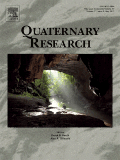
QUATERNARY RESEARCH
Bridging Disciplines to Illuminate Earth's Dynamic History.QUATERNARY RESEARCH, published by Cambridge University Press, is a leading academic journal that focuses on the study of the Quaternary Period, the most recent geological time period. With a strong emphasis on interdisciplinary research, the journal has significantly contributed to our understanding of Earth's dynamic systems and processes, making it an essential resource for researchers and professionals in the fields of Earth and Planetary Sciences, Earth-Surface Processes, and the Arts and Humanities. It is recognized for its high-impact contributions, reflected in its impressive Q1 rankings across multiple categories, including its position as 69th out of 552 in Arts and Humanities and 49th out of 195 in General Earth and Planetary Sciences, showcasing its influence and relevance in the academic community. While QUATERNARY RESEARCH does not provide open access options, it remains a crucial platform for disseminating valuable research findings and fostering scholarly dialogue. The journal's coverage spans from 1970 to 2024, serving as a comprehensive archive of key developments in the field.

Geografia Fisica e Dinamica Quaternaria
Connecting Scholars in the Study of Our Planet's HistoryGeografia Fisica e Dinamica Quaternaria is a leading Italian journal dedicated to the exploration and understanding of Earth-surface processes through the lens of Quaternary geology. Published by the COMITATO GLACIOLOGICO ITALIANO, this journal has been a key player in the dissemination of pivotal research since 1978, significantly contributing to the field of Earth and Planetary Sciences. With an ISSN of 0391-9838 and E-ISSN 1724-4781, it serves as an essential platform for scholars and practitioners, offering insights into the dynamics of climate change, glacial processes, and landscape evolution. Although categorized in the Q3 quartile for Earth-surface processes in 2023, the journal continues to foster a robust academic community, emphasizing the significance of interdisciplinary approaches in understanding our planet's past and present. Access options may vary, presenting potential considerations for readers. By bridging theoretical research with practical implications, Geografia Fisica e Dinamica Quaternaria remains an indispensable resource for advancing knowledge and promoting dialogue within the scientific community.
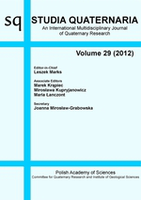
Studia Quaternaria
Pioneering research for a deeper understanding of geology.Studia Quaternaria is a leading academic journal published by the Polish Academy of Sciences, Institute of Geological Sciences, specializing in the dynamic fields of Earth-Surface Processes and Geology. With an ISSN of 1641-5558 and an E-ISSN of 2300-0384, this journal has been a prominent platform for scholarly discourse since its inception in 2000. Operating under the open-access model, it aims to disseminate high-quality research that is accessible to a global audience. Studia Quaternaria holds a Q3 ranking in both relevant quartiles as of 2023, indicating its commitment to advancing knowledge in its disciplines despite centering in competitive academic environments. With its publications indexed in Scopus, the journal remains a valuable resource for researchers, professionals, and students looking to stay abreast of innovations and discoveries in Earth-Surface Processes and Geology. Encompassing a broad scope of studies, the journal represents an essential contribution to the geological sciences, fostering a deeper understanding of our planet's changes and processes.
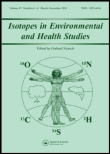
ISOTOPES IN ENVIRONMENTAL AND HEALTH STUDIES
Transforming Environmental Science with Isotope ExpertiseISOTOPES IN ENVIRONMENTAL AND HEALTH STUDIES is a pivotal journal published by Taylor & Francis Ltd, focused on disseminating cutting-edge research within the fields of environmental science and health. With an established history since its inception in 1995 and a convergence period extending to 2024, the journal plays a significant role in advancing the understanding of isotopic applications in environmental and health-related studies. Currently classified within the Q3 category in Environmental Chemistry and Q2 in both Environmental Science (miscellaneous) and Inorganic Chemistry, it ranks favorably among its peers, holding a position that highlights its academic relevance and impact. Although the journal does not operate on an open access model, it remains a crucial resource for researchers and professionals seeking in-depth analysis and findings that underpin the relationship between isotopes and environmental processes. Its contributions cater to a diverse audience keen on exploring innovative methodologies and interdisciplinary approaches that foster sustainability and public health.
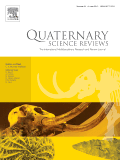
Quaternary Science Reviews
Connecting Disciplines Through Quaternary InsightsQuaternary Science Reviews is a premier international journal published by PERGAMON-ELSEVIER SCIENCE LTD, dedicated to the multidisciplinary study of the Quaternary period and its implications across a variety of scientific fields, including archaeology, geology, ecology, and environmental science. With an impressive impact factor that places it in the Q1 quartile across multiple categories such as Archaeology, Ecology, and Geology, it stands as a beacon of scholarly excellence. The journal, which has been in circulation since 1982 and converges its knowledge through to 2024, is instrumental for researchers and professionals seeking to explore the complexities of climate change, biodiversity, and earth systems. Though it does not currently offer Open Access options, its well-curated content remains vital for academic advancement and is accessible to a broad audience through institutional subscriptions. Positioned at the forefront of modern scientific inquiry, the journal fosters an environment for sharing pivotal findings and fostering intellectual discussions, making it an indispensable resource for students, practitioners, and researchers alike.

QUATERNAIRE
Connecting Geoscientists Through Groundbreaking Research.QUATERNAIRE is a reputable journal managed by the Société Géologique de France, specializing in the realms of Earth-Surface Processes and Geology. This esteemed publication has been a vital platform for scientific discourse since its inception, presenting compelling research and insights from both fields. With a significant impact in the academic community, it currently holds a Q3 quartile ranking in the 2023 Scopus categories, demonstrating its importance in disseminating knowledge related to geological phenomena. Although QUATERNAIRE does not have an open access model, it ensures that critical research is accessible to a wide audience, enhancing collaboration among geoscientists and environmental researchers. Based in France at 77, Rue Claude-Bernard, Paris F-75005, this journal continues to evolve its publication scope, welcoming contributions that delve into the intricacies of Earth's processes from 1990 to 2024. Researchers, professionals, and students alike will find valuable resources and inspiration within its pages, contributing to a deeper understanding of our planet's past and present.
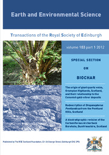
Earth and Environmental Science Transactions of the Royal Society of Edinburgh
Connecting research with real-world environmental applications.Earth and Environmental Science Transactions of the Royal Society of Edinburgh is a prestigious journal published by Cambridge University Press, dedicated to advancing research in the field of Earth and planetary sciences, as well as environmental science. With its ISSN 1755-6910 and E-ISSN 1755-6929, the journal has established itself as a crucial platform for disseminating innovative research and comprehensive reviews since its inception in 2007. Positioned in the Q3 quartile for both Earth and Planetary Sciences and Environmental Science, it contributes significantly to the ongoing dialogue and development in these areas, boasting a Scopus ranking that reflects its commitment to scholarly excellence with an emphasis on interdisciplinary approaches and real-world applications. The journal is based in the United Kingdom, with its editorial office located at the Edinburgh Building, Shaftesbury Road, Cambridge. As an essential resource for researchers, professionals, and students alike, Earth and Environmental Science Transactions offers opportunities for open discourse on pressing environmental challenges, fortifying its role in fostering a deeper understanding of our planet's systems and their interconnectedness.
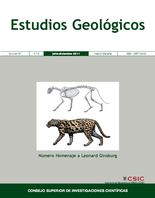
ESTUDIOS GEOLOGICOS-MADRID
Bridging Academia and Geology for Global Impact.ESTUDIOS GEOLOGICOS-MADRID is a prominent journal in the field of geology, published by the esteemed Consejo Superior de Investigaciones Científicas (CSIC) in Spain. Established in 1976, this Open Access journal has been a vital resource for researchers and professionals since its inception. With an impact factor reflecting its contribution to the Earth and Planetary Sciences community, ESTUDIOS GEOLOGICOS-MADRID currently holds a Q3 category ranking in Geology as of 2023, showcasing its relevance and quality within the discipline. The journal publishes a diverse array of geological studies, ensuring wide-reaching access to significant research findings, thereby promoting collaboration and knowledge sharing. Established as a platform for both foundational research and applied geology, this journal fosters academic growth and contributes to understanding the Earth’s processes. Researchers, professionals, and students are encouraged to explore its extensive archive, which includes publications from 1976 to the present. For more information, visit the journal's editorial office at Editorial CSIC, C/VITRUVIO 8, 28006 MADRID, SPAIN.
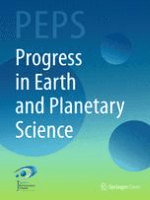
Progress in Earth and Planetary Science
Catalyzing global discourse in Earth and planetary studies.Progress in Earth and Planetary Science is a premier open-access journal published by Springer, dedicated to advancing the field of Earth and planetary sciences. Since its inception in 2014, this journal has emerged as a prominent platform, achieving a Q1 ranking in the Earth and Planetary Sciences category, reflecting its high impact and rigorous peer-review process that ensures the highest quality of published research. With its broad scope encompassing diverse subfields within the Earth sciences, the journal aims to foster interdisciplinary collaboration and innovation among researchers, professionals, and students. The journal's commitment to accessibility through its open access model promotes the dissemination of knowledge globally, allowing critical research findings to be shared widely within the scientific community. Located in the United Kingdom, Progress in Earth and Planetary Science continues to play an essential role in shaping the future of Earth and planetary research from 2014 to 2024 and beyond.